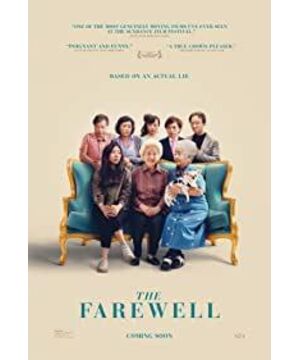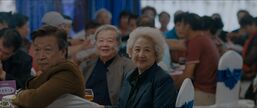I tried very hard to get close to the reality of Chinese society, and chose the Northeast where development is somewhat lagging behind. From this point of view, it may be a compromise for American audiences, because in the front line, in more developed areas, it is becoming more and more difficult to have such a three-generation family obsession. Generally speaking, the Chinese culture I see is positive and free, with each other interfering with each other.
Everyone in the movie seems to be a little traumatized
A shy mother and a father who has low self-esteem and hesitation are like typical immigrant parents. After 25 years of hard work, he was ridiculed by relatives for failing to catch up with China's rapid development. The house sold in Beijing has multiplied several times in more than 20 years.
Traditionally, the eldest son who stayed in Japan has a feeling of Guo Jubu'er. He is the person who has the mantle of an old lady the most. He places his wife in the country, arbitrarily manipulates his son's life, and finally weeps in narcissism at the wedding, which is sad and deplorable.
The daughter was taken away from the motherland since she was a child, and lived with difficulty on the other side of the ocean. Every step was a difficult gamble, and she struggled alone. She did not have the introverted motivation of her parents, but found herself in her family.
In contrast, after the war, the revolutionary old people seem to be the most normal people. Everyone understands that people like grandma sometimes hold it in one breath and immerse themselves in the social personality of grandma and eldest son. Maybe they don’t think, but they are happy in a simple life. There are those who are awake and struggling in pain.
View more about The Farewell reviews











